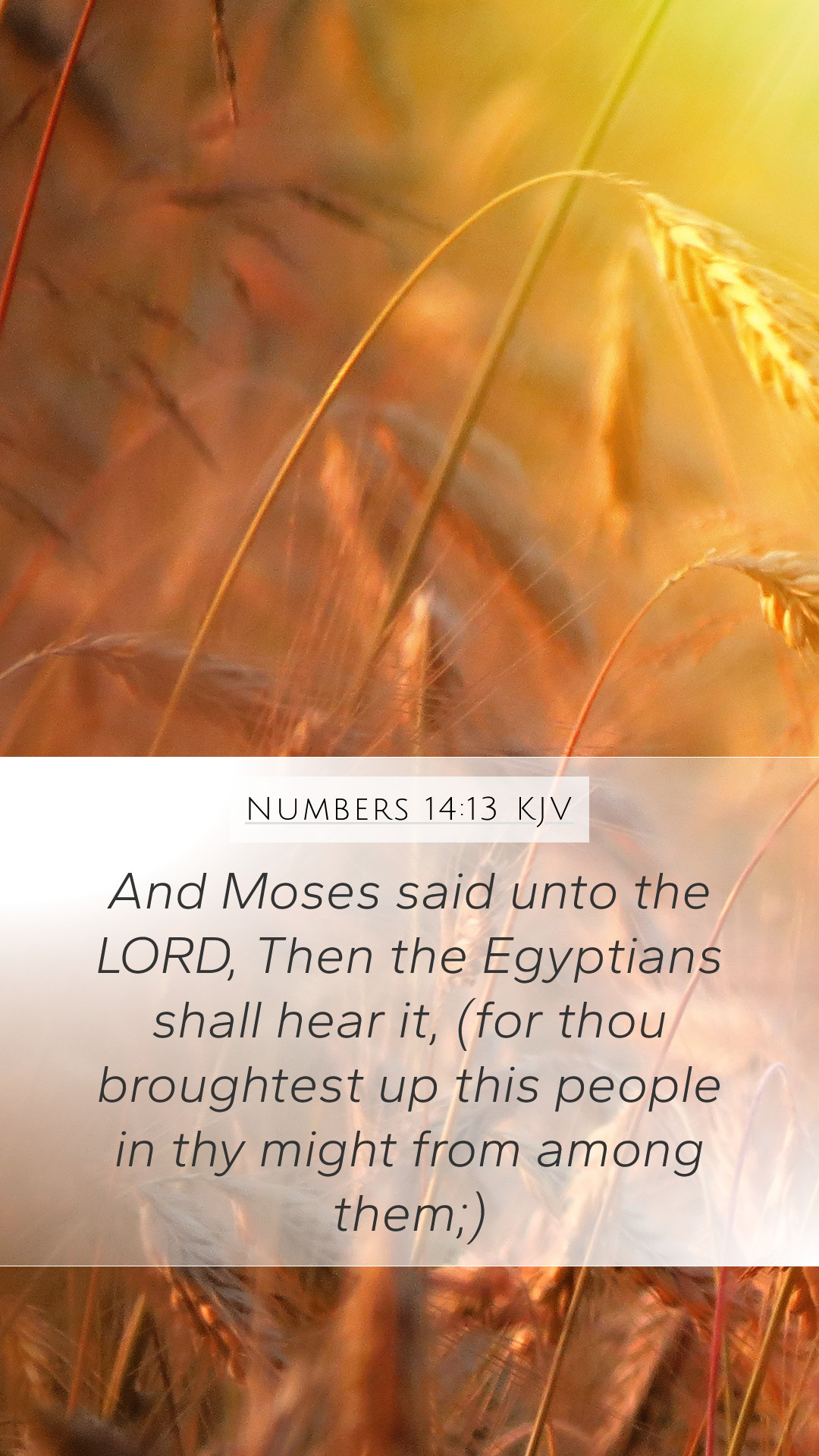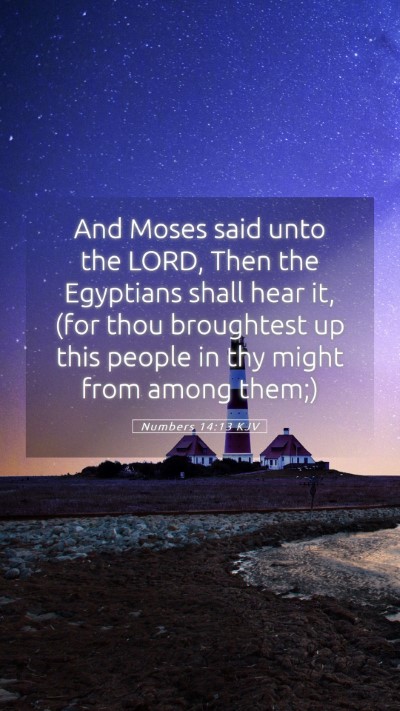Bible Verse Meaning and Commentary on Numbers 14:13
This passage from the Book of Numbers is pivotal in understanding the dynamics between the Israelites, Moses, and God during their journey through the wilderness. In Numbers 14:13, Moses speaks to God in response to the people’s rebellion against Him, regarding how God might respond to the people’s disobedience.
Verse Summary
Numbers 14:13: "And Moses said unto the LORD, Then the Egyptians shall hear it, (for thou broughtest up this people in thy might from among them;)”
Interpretation and Understanding
This verse captures a defining moment where Moses appeals to God’s reputation and the implications of divine judgment. The insights from several public domain commentaries provide a deeper understanding of this pivotal verse.
Commentary Insights
- Matthew Henry:
Henry emphasizes Moses’ concern for God's reputation among the Egyptians. He argues that Moses is aware that the people’s rebellion would provide the adversaries of Israel an opportunity to mock the Lord’s name. God’s might in delivering the Israelites from slavery is at stake, and Moses is deeply committed to interceding for his people.
- Albert Barnes:
Barnes discusses Moses' thought process as he contemplates the consequences of divine judgment. He points out that the Egyptians witnessed the plagues and the miraculous exodus; if God were to destroy His people, it would suggest to them that He was unable or unwise to save them, thus tarnishing His name.
- Adam Clarke:
Clarke offers a detailed explanation of the context in which this plea is made. He notes the emotional burden on Moses as a leader, reflecting both empathy for the people and concern for God's holiness and reputation. Clarke points out that in spiritual leadership, the intercessor must balance divine justice with mercy, which is vividly seen in this instance.
Key Themes in Numbers 14:13
- The Importance of God’s Reputation:
God’s reputation among the nations is a frequent theme in Scripture. Moses believes that God’s actions will shape the impressions held by the Egyptians regarding Yahweh.
- Intercession and Leadership:
Moses exemplifies the role of an intercessor, taking upon himself the burden of others’ sins and seeking mercy rather than judgment. This highlights the qualities of a biblical leader and the relational aspect of humanity with God.
- The Nature of God’s Holiness:
God’s holiness demands justice, but His compassion calls for mercy. This complex nature of God is shown through His interactions with His chosen people and their failures.
Practical Application
Understanding this verse and its implications allows readers to reflect on the nature of their relationship with God and the impact of their actions on others' understanding of God. It teaches about the weight of leadership and the necessary balance of truth and grace.
Related Bible Cross References
- Exodus 32:12: Reflects Moses’ intercessory prayer on behalf of the people.
- Psalms 106:23: Highlights the importance of God’s honor among the nations.
- Isaiah 48:9: Discusses how God preserves His name and reputation amidst judgment.
- 1 Samuel 12:22: Affirms God’s commitment to His people despite their failures.
- Ezekiel 20:9: God acts for His name’s sake among the nations.
Conclusion
In Numbers 14:13, we see a crucial moment rooted in historical context, leadership responsibility, and the essence of divine-human relationship. Through Moses’ plea, God’s multifaceted nature is revealed—both in His holiness and mercy. As one studies this verse, deeper insights into the character of God and our responsibility as believers come into focus, enriching our Bible study endeavors.


